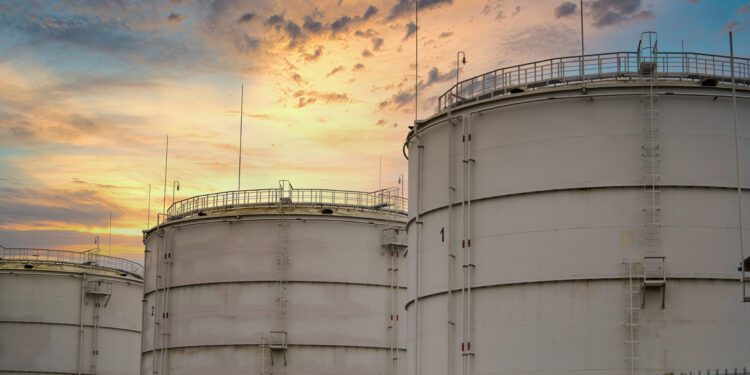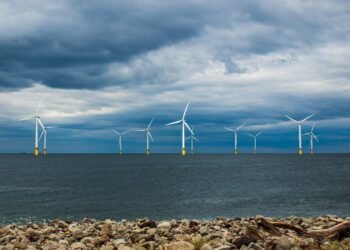Extreme weather events have a hefty price tag. In 2024, they have already cost the world over USD 41 billion in damages according to a recent report. Last year, it was USD 301 billion for weather and climate events. By 2050, climate change could cause an additional 14.5 million deaths and USD 12.5 trillion in losses worldwide.
A key question is: Who pays for all of this? In some cases, governments are stepping in to fill the void, yet this approach puts undue burden on public finances and on taxpayers. At the same time perpetrators of this crisis – the fossil fuel majors responsible for climate chaos because of their polluting business – are left unscathed. This is neither sustainable nor fair.
The climate crisis is making insurance unsustainable
Extreme weather events have affected human societies throughout the Holocene epoch, some 10,000 years ago. Human ingenuity helped us adapt economically to ensuing disasters by transferring or distributing risks.
Millenia before modern insurance schemes were developed in 17th century London, such principles were already applied by Chinese, Babylonian and Egyptian traders, and by investors and sea merchants who were only liable to pay back if their ships weren’t swallowed by deadly storms.
Yet with violent weather events turning more numerous than at any other time in history, insurers are finding their original purpose becoming unsustainable.
In France, insurers turn to raising premiums to unattainable levels, the state is stepping in and drivers are asked to park under cover during hail storms. In Germany, just one out of two residential buildings are adequately insured. In regions like Bavaria, where coverage is not mandatory, the insurance gap is even more pronounced. In parts of California, Florida, and Louisiana, homes and other property are becoming entirely uninsurable, left to face wildfire and hurricane risks. In Global South countries, hit hardest by climate change, much of the population has no access to insurance whatsoever. The insurance gap is a critical issue which legislators worldwide are struggling to confront. In the words of a representative of Zurich Re, a global insurer: Climate change poses an economic threat that increases social inequity.
The current model of insurance is faltering in a climate-changed world. Policymakers must consider alternative models that prioritise resilience and affordability over profits.
The solution lies in the deepest roots of the problem. Without human-induced climate change, extreme weather events would be far less frequent and less intense. And without the fossil fuel industry, there wouldn’t be a crisis on such scale.
Solution: make polluters pay
Companies like Chevron, Exxon, Shell, Total, Equinor and Eni are not only some of the world’s largest polluters, but they have also known about climate change for many decades, ignoring the science while continuing to extract fossil fuels. Some engaged in denying science and obstructed meaningful climate action, perpetuating our dependency on oil and gas. At the same time, Big Oil is making huge profits from people’s suffering – reportedly over USD 2.8 billion jointly every day on average for the past 50 years.
Right now it seems we’re digging ourselves deeper and deeper into a hole: Premiums go up due to climate change, governments use taxpayers money to pick up the bill, while international oil companies continue to rake in billions in profits and to further expand their climate wrecking projects. This triggers more extreme weather, more costs, and a further rise in premiums.
But it doesn’t have to be like this. To address the growing insurance gap, insurers must hold oil and gas liable for lost earnings rather than raise their premiums, as they did against tobacco companies for deceptive business practices.
A complementary approach is for governments to act. A recent report, supported by over 100 organisations worldwide, including Greenpeace International, shows that taxing fossil fuel companies in the world’s richest economies could raise USD $720 billion by 2030.
It’s time to make the polluters pay. Sign now to hold the oil and gas corporations accountable, and support a safe and fair future for all.Add your name
Either way, forcing oil and gas companies to pay for loss and damage would address the insurance gap in a just and practical way. It would allow governments and insurance companies to both maintain and expand affordable insurance for all, while ensuring that those who profit most from pollution bear the costs of the resulting climate impacts.
Making polluters pay would not only make up for an insurance system already losing touch with its original purpose. Being held liable for climate damages will also make the industry an increasingly bad bet for investors. The managed decline of the oil and gas sector isn’t just about reducing supply and demand, but also ensuring the wealth accrued by the industry flows to those most impacted by the climate crisis. Both outcomes would present a victory for people and nature.
By Ian Duff/Courtesy Greenpeace












